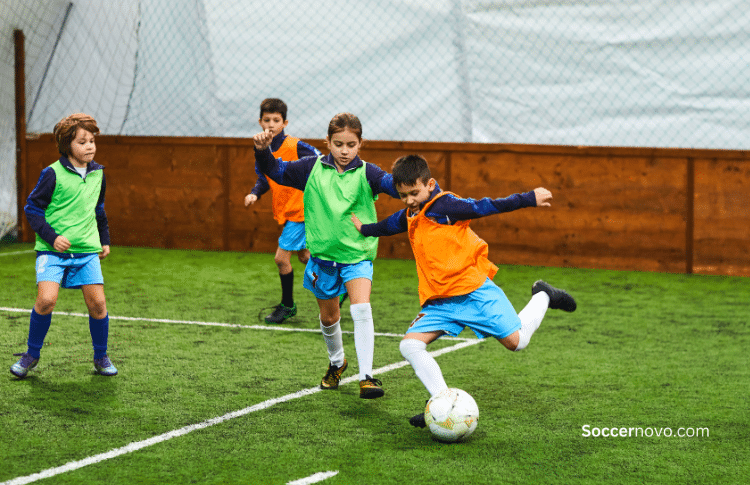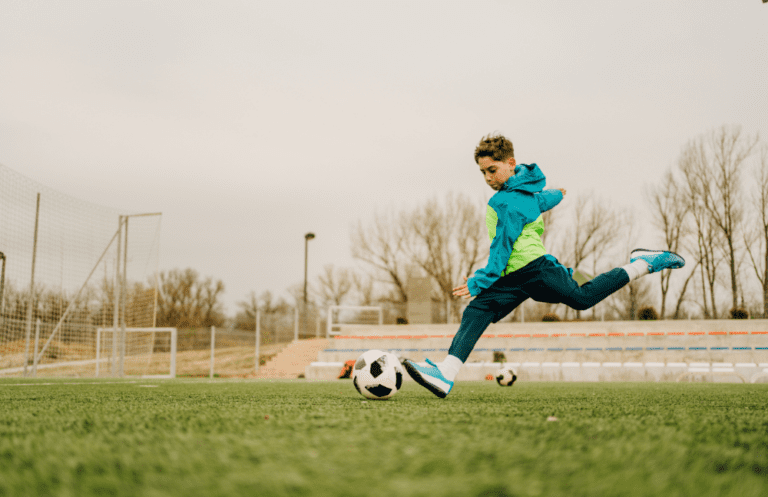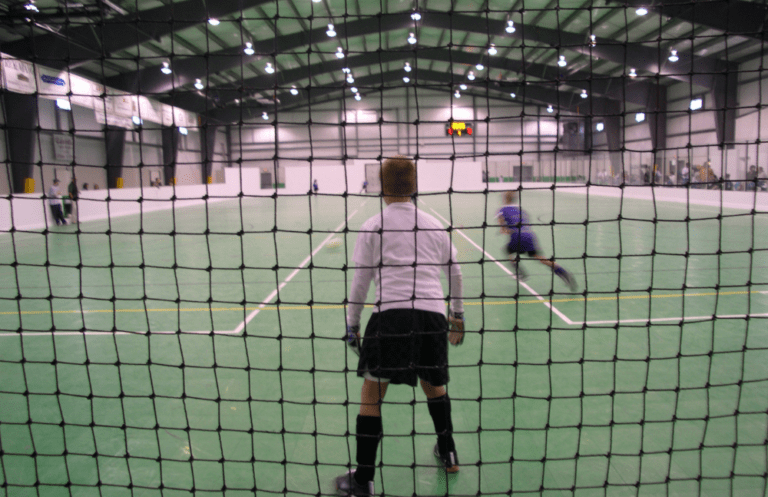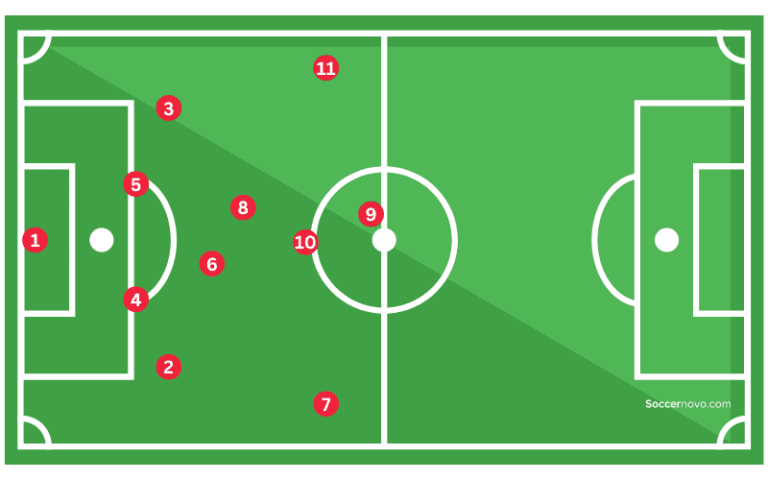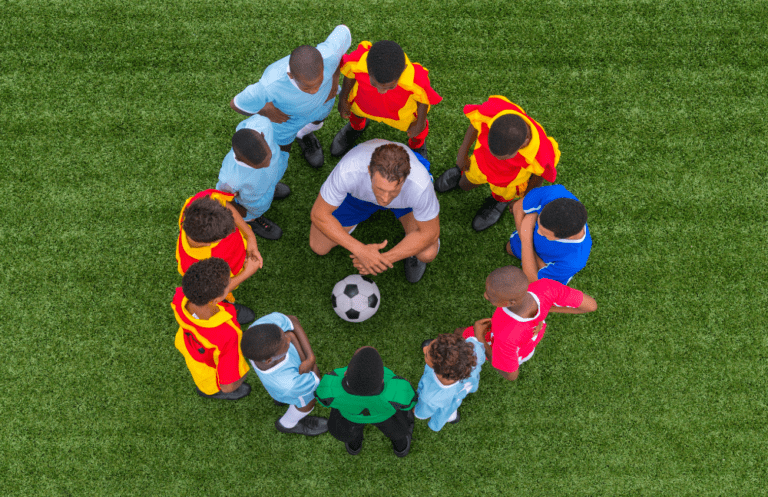Soccer Tips for Beginners
The start of someone’s soccer playing days should be more fun than intimidating. The sound of a soccer ball being kicked, falling on the short green grass and the cheers from the sidelines make the game exciting.
Every parent, coach and soccer organization should strive to make a friendly and fun environment for their players. The end goal is for these players to come back next year and subsequent years after that.
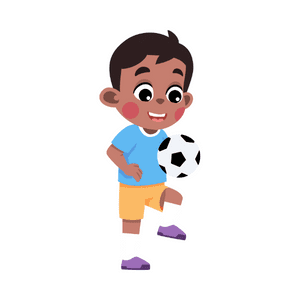
Being dedicated is one of the most important things a player can do to get better. Simply by getting out there on the field (pitch), you are taking your first step to becoming a soccer player.
In this article, we’ll teach you soccer tips for beginners and the skills you need to become a better soccer player this year!
The Fundamentals of Soccer
There’s no doubt that soccer is a global phenomenon. In the U.S., we’ve lagged behind other countries like Europe but things seem promising here in the states.
In the United States, approximately 436,000 high school males and 374,000 high school girls participate in the sport now. Additionally, about 3 million soccer players play at the youth-level.
In general, youth soccer in the U.S. is setup with the following levels:
- Town Recreational Leagues (play teams in the same town)
- Town Travel Leagues (play for your town but compete against nearby towns)
- Club Leagues (play with players in your region and compete regionally/nationally)
There’s different layers within each of the above but this is what it looks like at its core.
In the youth leagues, soccer games could be anywhere from 20 to 90 minutes depending on the age group.
Soccer rules are generally the same across all age groups but they do have their subtleties. Here’s a couple of articles to get you acclimated with the rules.
A wealth of resources is available to anyone who wishes to improve their soccer skills. Also, there are various options for youngsters to learn the game of soccer, including summer camps and year-round training programs.
But, the best teacher is real life! So get out there and kick a soccer ball with your parents, friends and teammates.
Beginner’s Soccer Tips
An amazing adventure awaits you if you take up soccer at an early age. Sports teaches young men and women many valuable life lessons including leadership, hard work, persistence, dedication, communication and teamwork.
If you want to get the most out of your soccer career, keep these recommendations in mind as you or your child embark on the journey.
Begin by Watching Soccer
As parents, I know we are trying to limit screen time but getting comfortable with introducing the sport of soccer to a beginner can start with the TV or tablet.
Watching a professional match can give a player the basic introduction to soccer. One team kicks it in one direction trying to score. While the other team is trying to defend their own goal.
Watching soccer highlights can be a great motivator. I remember watching Messi highlights with my son and it would give him the sudden inspiration to get outside and kick the ball around.
Helpful tip: Watching soccer highlights with music is a great motivator as it affects multiple senses. But, just preview it before because some of the music lyrics contain adult words in them.
Focus on the Fundamentals
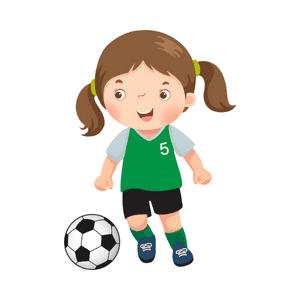
Mastering the basics of the game will allow you to go on to more advanced techniques.
Finding a game plan with progression can make training sessions more valuable and less frustrating.
For young players, think of their pathway as a ladder. In order to advance to the next rung, they’ll have to work on the skills in front of them now.
Be a “Ball Hog”
Having a soccer ball with you at (almost) all times can help you get more comfortable and gain more confidence.
Bringing your soccer ball to school is an excellent way to play more and make new friends.
Similar to being a “gym rat”, being a “ball hog” (in this sense) can provide players with the much needed extra training time outside of their normal practices.
Prioritize Offense First – Player Development
This might come as an unpopular opinion but prioritizing a player’s offensive skills before defense will help develop the player faster.
Many of the offensive skills in soccer take time to improve. Whether it’s going around an opponent or making a precise pass, these skills require hours of dedicated work.
As we’ll address next, defense should be a priority at the team-level. But, much of the defense at younger ages is about putting in the effort.
Prioritize Defense First – Team
In game situations, it’s important to put emphasis on defense. Defense will help put young team’s in a position to not only get more scoring opportunities but to win games as well.
I understand that winning isn’t everything but it sure does help build up team morale.
It may be difficult for players to spend more attention on defense than offense, but doing so can help them improve their overall game.
Moreover, defense is a great way to teach sportsmanship and teamwork. On the defensive-end of a pitch, players need to communicate and work together to prevent goals. There needs to be a level of “I got your back” when it comes to playing great defense in a game.
Accept All Feedback (and don’t take it personal)
Accepting positive and negative criticism is critical at an early age. Young players should be sponges. They are still learning the game and coaches and trainers have decades of experience they can share.
Being a “know-it-all” will not only be harmful to the trajectory of a player’s development but isn’t beneficial in life either.
On the other hand, using criticism as a teaching lesson and as a motivator can help accelerate a player’s development.
Even at the professional-level, players are often getting better by welcoming positive feedback on their game.
As players, it’s sometimes difficult to have self-awareness and see things how they realistically are. A neutral third-party such as a coach or training can give you that different perspective.
Again, players should learn to absorb information like a sponge. Leverage the experience of your coaches, trainers and (maybe) parents.
Lean on One Basic Rule – No Hands (Unless You’re a Goalie)
Most young players have a natural instinct to grab a ball. Rightfully so, most kids learn to play catch at an early age so they are more inclined to touch with their hands.
However, most soccer is played at the feet. It is important to instill this in players.
Don’t teach throw-ins too early. Keep it simple and educate players about the fundamentals (that word again 😉) of passing to feet and dribbling using different moves.
Positive Attitude is the Key
When learning a new sport, it can be frustrating at times. Some things won’t be going as expected. Players may feel frustrated with their lack of progress. Or, maybe they’ve been working hard but the coach isn’t playing them as much as other kids.
In any case, it’s always advantageous to keep a positive attitude through the highs and lows.
Negative and pessimistic thinking can halt a player’s development. This mindset can put players in a state of idleness.
By having the positive in everything, motion happens. And, when players are in motion, progress naturally occurs.
With all aspects of life, try to have a positive attitude. It will pay dividends for the rest of one’s life.
Important Soccer Attributes for Beginners
Becoming a great soccer player requires a wide variety of qualities, as well as a lot of hard work and regular practice to hone and polish your skills.
Here are the top five most important soccer skills that every player must have. Working on these every week will almost certainly help you take your game to the next level.
- Ball Control – Moving the ball, dribbling it, and then shooting it to score goals is the essence of soccer. To that end, it should come as no surprise that mastery of the ball is a crucial ability for every soccer player.
- Passing the Ball – Although ball-handling skills are crucial, soccer is ultimately a team sport. Because of this, having the ability to pass the ball successfully may determine the outcome of any game.
- Good Positioning – The different players on a soccer team are all responsible for various tasks depending on their position. And as the game goes on, players might shift to where they’re needed most. It’s always beneficial to zoom out and look at your positioning in comparison to your teammates.
- Stamina and Speed – All soccer players, regardless of position, need to be able to maintain high levels of physical and mental stamina. Stamina becomes evident as the game develops, and getting faster provides an advantage on the pitch.
- Discipline – Adhering to a daily practice routine is essential if you want to develop your talents and enhance your level of expertise. Yet, if you’re dedicated and disciplined enough, you can push through these difficulties and become a better, more skilled soccer player on the other side.
Mistakes To Avoid While Starting Out in Soccer
When first beginning training, many players make these common soccer mistakes.
- Working on everything at once. To develop your soccer abilities, you’ll need consistent focus on one thing at a time. Drill into specific aspects of your game then move on to the next rung of the ladder.
- Stopping at times of frustration. Don’t give up after a few setbacks. It took the greats like Messi and Ronaldo many attempts to master their skills. They’ve lost, they’ve had heartbreaks, they’ve had injuries but one thing didn’t happen…they never gave up.
- Playing only one position. Don’t box yourself into one certain role and position at an early age. Play as many positions on the soccer field as possible. As players get older, they’ll naturally gravitate towards certain positions based on their strongest attributes.
- Not knowing the basic rules. Understanding the rules of soccer can help think things through when practicing. Most of the rules are simple – no hands, goals count when it crosses the line, no pushing, etc. But, understanding more complicated aspects of the game is important too. For example, in order to effectively become a Striker, you’ll need to know the ins and outs of offsides.
Are You Ready to Play Soccer?
I hope this article provides a helpful overview for players just starting out at the sport of soccer.
At Soccer Novo, we continue to pour our passion for soccer into our content. We’re here to educate and provide soccer tips for beginners and those players who have been playing for many years.
Soccer provides so much healthy entertainment for our youth. From playing with their friends to competing against other towns/states, soccer provides a competitive environment for those that seek it.
Not that competitive about soccer? Great! Recreational programs in your area are fun and casual! Parents can sit back and enjoy their coffee on a Saturday morning while they watch their little one’s run up and down on a soccer field.
Are you looking for more competitive soccer? Awesome too! We have a large directory of soccer clubs in your area. Joining club soccer can provide many opportunities for youth players who want to take their game to the next level.
At the end of the day, soccer should always be fun. Once it becomes a “chore”, it’s probably an indication to take a step back and reset.
Of course there will be times when a player gets frustrated but if the love for the game supersedes it then soccer becomes fun and easy!

